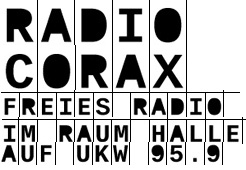Author: admin
Voici la lettre et la pétition de David Grosclaude, conseiller régional d’Aquitaine qui entame une grève de la faim pour manifester son attachement à la Langue Occitane aujourd’hui menacée par l’Etat Français.
https://david-grosclaude.com/

Chères amies / Chers amis,
Assez de mépris pour notre langue !
Les signes de mépris de la part de l’État pour notre langue se succèdent et se multiplient. Avec le dernier en date, l’accumulation me contraint à mener une action pour laquelle je sollicite votre soutien.C’est une action en faveur de la dignité de notre engagement pour la reconnaissance de la langue occitane.
Je m’installe, ce jour, dans le hall de l’Hôtel de Région à Bordeaux et j’y entame une grève de la faim. Je souhaite dénoncer l’absence de suites donnés par les services de l’État un projet voté par l’assemblée régionale d’Aquitaine et par l’assemblée régionale de Midi-Pyrénées en juin 2014. Cela fait bientôt un an !
Ce projet, afin de voir le jour officiellement, ne nécessite que la publication d’un décret au Journal Officiel. Il s’agit de la création de l’Office Public de la Langue Occitane (OPLO) sous la forme d’un Groupement d’Intérêt Public (GIP). Ce sera un organisme interrégional destiné à promouvoir une politique en faveur de la langue occitane, dans plusieurs domaines et résolument tourné vers le développement de la langue. Il s’agit de faire en sorte que le nombre de locuteurs cesse de baisser et qu’il augmente à terme. C’est pour cette raison qu’il est tourné en priorité vers les jeunes générations.
Que des délibérations de deux assemblées régionales soient traitées avec si peu de considération —pour ne pas dire avec du mépris— n’est pas acceptable. Cela ne fait que donner des arguments à tous ceux qui pensent que la politique consiste seulement à faire des promesses que l’on ne tient pas. Que diront-ils alors si les décisions votées ne sont pas mises en oeuvre ?
Quand deux régions décident de mener une politique commune pour promouvoir notre langue, dont on sait qu’elle est menacée, l’État est non seulement aux abonnés absents, mais il bloque. C’est aussi le cas sur d’autres dossiers concernant notre langue.
Ce blocage de l’État central lorsqu’il s’agit de traiter de la question des langues dites régionales est récurrent. Il existe des réticences à chaque fois que cette question des langues est mise en débat. N’est ce pas le cas aujourd’hui avec la réforme du collège ? Que deviendra l’enseignement de l’occitan et en occitan ? Les craintes sont grandes et justifiées de mon point de vue.
J’ai été sollicité en 2013 pour participer aux travaux d’une commission sur la pluralité linguistique, à l’initiative de la ministre de la Culture. Cette commission a auditionné des dizaines de personnes, a travaillé pendant plusieurs semaines, et a nécessité de très nombreuses réunions. Un rapport a été publié, contenant des propositions très concrètes et très facilement applicables ; il n’y a eu aucune suite. Quel gâchis !
Je tiens à souligner qu’en tant qu’élu délégué, j’ai travaillé au projet d’Office Public avec le soutien du président de la Région Aquitaine et avec l’aide entière des services et en parfaite entente avec mon collègue de Midi-Pyrénées.
Alors que le mandat des élus régionaux arrive à son terme j’estime avoir des comptes à rendre. J’assume mes responsabilités d’élu et chacun doit prendre les siennes.
Il existe un blocage et, de mon point de vue, du mépris. J’interpelle l’État et particulièrement ses services centraux. Il faut que cette situation cesse.
Vous connaissez mon engagement en faveur de la langue, je compte sur votre soutien.
Je vous remercie.
David Grosclaude
Author: admin
 From May 26 to May 28, the International Seminar: “Community communication for a new century” will host international guests and put an emphasis on the experiences of communication of indigenous peoples in Santiago de Chile.
From May 26 to May 28, the International Seminar: “Community communication for a new century” will host international guests and put an emphasis on the experiences of communication of indigenous peoples in Santiago de Chile.
Organized by the World Association of Community Radio Broadcasters (AMARC), this meeting aims to deepen the debate between the public and community sector on the role of social communication in Chile and worldwide, with a particular focus on the case of community radio of the indigenous peoples.
The opening session and the first panels, with various panelists from Latin America, Africa, Europe and Chile, are scheduled for Tuesday, May 26, at 9.00 am, in the Salón de Honor del Palacio Consistorial of the city of Santiago.
This meeting is an unique occasion in Chile to promote dialogue between national and international voices, government authorities, community radio practioners and representatives of the civil society around freedom of expression, social rights, democratization and rights of communications.
To respond to the continuous needs of knowledge sharing faced by community radios, the program planned self-training workshops on Wednesday 27 and Thursday 28 at the Centro Cultural Gabriela Mistral GAM. These workshops will focus on improving the management of community radio stations, strategies of information production from local to global and will deepen the reflection on indigenous peoples and gender issues.
The International Seminar “Community communication for a new century” is open to journalists, researchers and students willing to participate in an exchange with activists from the field of communication and representatives of indigenous peoples, about their means of communication and in particular radios that have been in constant demand in Latin America.
This meeting is supported by the Consejo Nacional de la Cultura y las Artes (CNCA), the Corporación Nacional de Desarrollo Indígena (CONADI), the Ministerio Secretaría General del Gobierno, the city of Santiago, Centro Cultural Gabriela Mistral (GAM) and UNESCO.
Registrations: Mónica Farías mfariasrodriguez@gmail.com
Contact for interviews: María Pía Matta, President, World Association of Community Radio Broadcasters (AMARC)
More information: https://www.amarcchile.cl
Author: admin

Montreal, May 13, 2015. For 10 years, the International Day against Homophobia, Transphobia and Biphobia (IDAHOT) has mobilized the public opinion around the world on May 17 on issues related to homophobia, transphobia and biphobia. Every year on this day, millions of people in over 130 countries raise their voices to denounce the injustices that persist and support the recognition of human rights for all, regardless of sexual orientation, gender identity or expression.
Discrimination, exclusion and violence against sexual and gender minorities are a source of concern. Deeply rooted in their communities and agents of social change, community radio stations play a role of education and advocacy in raising public awareness on the importance of openness to difference. In addition, these radios are working to ensure fair representation of gender and minorities on the airwaves to promote inclusion and tolerance for all. That is why, this year again, the World Association of Community Radio Broadcasters (AMARC) invite its members to participate in large numbers in the International Day against Homophobia, Transphobia and Biphobia by sharing thematic contents.
The audio productions will be added on AMARC’s website where they will be available for streaming and downloading. In addition, the productions will benefit from a visibility campaign on social networks and in the network of partners and supporters of AMARC to mark this important day.
How to send your programs?
Please send your audio productions as soon as possible through to We Transfer to secretariat@si.amarc.org accompanied by a short description and the logo of your radio. This information will be used to promote your production.
If you are struggling to make the transfer of documents or if you have any questions, please contact the International secretariat.
Thank you for your contribution to this important campaign.
Author: admin

Montreal, May 14, 2015. In recent days, citizens have protested against the actions of oil companies in the region of Al Fawar in southern Tunisia. On May 9, journalists from Radio Nefzawa, a Kebili based community radio station, covering the protests and the visit of the Minister of Industry and Energy in the region were violently attacked by unknown characters and their equipment was broken. At least one journalist suffered a serious injury.
Following these events, Radio Nefzawa contacted the local police but so far and despite promises to follow up on the event, no concrete actions have been undertaken.
The World Association of Community Radio Broadcasters (AMARC) strongly protests against these intimidation acts against independent and community radios and calls on the Tunisian authorities to ensure the security of journalists and prevent threats against freedom of expression, in line with international and national standards.
Author: admin
 The program for the close-up conference “Radio Archives in European Community Media” at Radio CORAX in Halle/Saale (Germany) is out now!
The program for the close-up conference “Radio Archives in European Community Media” at Radio CORAX in Halle/Saale (Germany) is out now!
Please check here to download the PDF.
Radio Corax invites you to register your participation at the conference till the end of May. The conference is free of charge. There will be German and English translation. If you are interested to join the conference and need further information, please don´t hesitate to contact them: info@livingarchives.eu